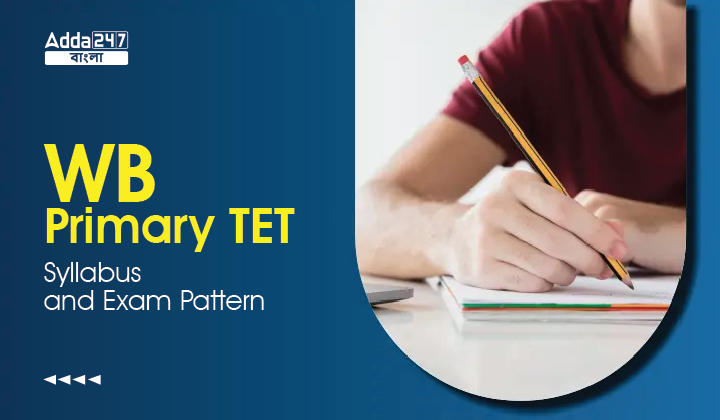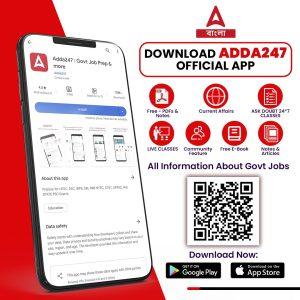Table of Contents
WB Primary TET Syllabus
WB Primary TET Syllabus: West Bengal Board of Primary Education(WBBPE) has released the WB Primary TET Syllabus on its official website i.e. www.wbbpe.org for teachers’ posts. To get good marks in the WB Primary TET Exam, it is very important to understand the WB Primary TET Syllabus. From this article, candidates will know the WB Primary TET Syllabus in detail.
| WB Primary TET Syllabus | |
| Recruiting Organization | West Bengal Board of Primary Education (WBBPE) |
| Category | Syllabus |
| Exam | WB Primary TET |
| Topic | WB Primary TET Syllabus |
| Level of Exam | State Level |
| Mode of Exam | Offline |
WB Primary TET Syllabus
WB Primary TET Syllabus: WB Primary TET পরীক্ষাটি West Bengal Board of Primary Education(WBBPE) নিয়ে থাকে এবং এই বোর্ডেই প্রাথমিক বিদ্যালয়ের শিক্ষক হওয়ার যে যোগ্যতা পরীক্ষাটি হয় তাতে প্রার্থীদের অবশ্যই D .EL .ED কোর্স সম্পন্ন করতে হয় এছাড়াও B .ED প্রার্থীরাও এই পরীক্ষায় বসতে পারেন। এই আর্টিকেলটিতে, WB Primary TET Syllabus নিয়ে আলোচনা করা হয়েছে। তাই আগ্রহী প্রার্থীরা এই সম্পর্কে বিস্তারিত জানতে ও তথ্য পেতে আর্টিকেলটি পড়ুন।
Click Here To Download WB Primary TET Notification 2024
WB Primary TET Syllabus
WB Primary TET Syllabus: 2024 সালের প্রাথমিক বিদ্যালয়ের শিক্ষক নিয়োগের WB Primary TET Syllabus টি পরীক্ষার্থীদের সুবিদার্থে সম্পূর্ণ নিচে দেওয়া হল-
Child Development and Pedagogy(30 MCQs)
Child Development:
- Concept and principles of development, growth and maturity, ration, the difference between growth and
development, the relationship of development with learning
• Heredity and environment as factors of development
• Socialization processes: Social world & children (Teachers, Parents, Peers)
• The important period of lifespan after Arnest James and Rousseau; physical, psychological and
social development according to each period of the lifespan.
• Physical, Social, Emotional, Language, and Cognitive development; Views of Piaget, Kohlberg
and Vygotsky
• Personality: meaning, nature, and theories (Freud, Erickson)
• Intelligence-meaning, nature, and theories (Spearman, Thorndike, Guilford, Gardner, Sternberg)
and their implications
• Individual differences among learners and their educational implications in teaching-learning
process
Concept of Inclusive education and understanding children with special needs:
- Addressing learners from diverse backgrounds including disadvantaged and deprived groups
- Addressing the needs of children with learning difficulties (physical, sensory, developmental, and behavioral) types of land earning disabilities (dyscalculia, dysgraphia, dyslexia,
nonverbal learning disabilities). - Addressing the Talented, Creative, Differently abled Learners, Learners with SLD
- Gender as a social construct; gender roles, gender-bigender biasational practices
Learning and Pedagogy:
- Learning-meaning; nature; theories (Pavlov, Skinner, Thorndike, Gestalt) and their implications.
- Concepts of child-cenchild-centered-learner-centeredgressive education
- Teaching-meaning, nature, phases of teaching, levels of teaching
- Constructivism: nature, principles, types and 5E model
- Motivation and learning-learning achievement motivation
- Methods of teaching based on Lecture, Demonstration, Discussion, Discovery, Heuristic, Inductive,
- Deductive, Project and Problem solving
- Bloom’s taxonomy of instructional objectives and learning outcomes
- Microteaching and Teaching skills
- Formative and Summative evaluation; Assessment for learning and Assessment of learning;
- School-Based Assessment, Continuous & Comprehensive Evaluation, Diagnostic test
- Formulating appropriate questions for assessing learners, enhancing learning and critical thinking in the classroom, and, assessing learners’ achievement.
Part-B: Language – I (30 Questions)
(a) Language Comprehension: 15 Questions
Reading of two unseen Passages — one from prose and another from poetry (Prose Passage may be linguistic, literary, scientific, and discursive, and poetry stanza may be descriptive and dramatic). 9 questions from prose and 6 questions from poetry may be given based on comprehension, grammar, and language ability.
(b) Pedagogy of Language Development: 15 Questions
- Learning and acquisition.
- Basis of Language Teaching – Skills.
- Functions of Language skills – Role of listening and speaking: how learners use these as tools.
- Role of Grammar in Language learning for communication ideas both oral and written form.
- Difficulties and Challenges in Language teaching in diverse classrooms – errors and disorders.
- Teaching of first language in a multilingual classroom – transition from mono-lingual to multilingualism.
- Evaluation of language proficiency and comprehension – Development of Teaching learning materials –
- Text Books, Teaching Materials, multi-media materials with ICT, multilingual resources, etc.
- Remedial Teaching
- Lesson Plan/design
- Microteaching
- Assessment and Evaluation
Part-C: Language – II (English) 30 Questions
(a) Comprehension: 15 Questions:
- Two unseen prose passages (discursive, literary, narrative, scientific) with questions on comprehension,
- grammar and vocabulary.
(b) Pedagogy of Language Development: 15 Questions
- Learning and acquisition.
- Principles of language teaching
- Role of listening and speaking; function of language and how children use it as a tool.
- A critical perspective on the role of grammar in learning a language for communicating ideas verbally and in written form.
- Challenges of teaching language in a diverse classroom; language difficulties, errors, and disorders.
- Language Skills.
- Approaches, Methods, and Techniques of Teaching English.
- Evaluating language comprehension and proficiency: speaking, listening, reading, and writing.
- Teaching Learning Materials (TLM): Textbook, multi-media, multi-lingual resources to be used in classroom teaching.
- Remedial Teaching.
Part-D: Mathematics 30 Questions
(a) Content: 15 Questions
- Geometry,
- Shapes,
- Numbers,
- Addition & Subtraction,
- Multiplication,
- Division – Division Algorithm,
- Area & Perimeter,
- Time,
- Patterns,
- Money
(b) Pedagogical Issues 15 Questions
- Nature, characteristics and theoretical aspects of Mathematics education.
- Aims and objectives of teaching Mathematics at the primary stage.
- Relevant curriculum and resource in Mathematics learning.
- Mathematics teacher and teaching-learning methods and approaches.
- Pedagogic content knowledge.
- Planning for teaching Mathematics.
- Evaluation of Mathematics Learning.
- Mathematical problems based on deep concepts to justify the teaching ability based on application concerning pedagogical issues.
Part-E: Environmental Studies 30 Questions
(a) Content 15 Questions
- Physical and Social Environment
- Geographical location of India and West Bengal and their environment
Environment-related historical events - Food, Shelter, Clothes, Travel
- Ecology and ecosystem, food chain
- Atmosphere, land, water
- Environmental pollution
- Plants, animals, biodiversity
- Natural resources
- Family and Friends
- Waste and waste management
- Global environmental issues
- Environment and health
- Human skill and endeavor
(b) Pedagogical Issues 15 Questions
- Concept and scope of EVS
- Significance of EVS, integrated EVS
- Environmental Studies & Environmental Education
- Learning principles
- Scope and relation to Science and Social Science
- Approaches of presenting concepts, activities; Lesson plan/design
- Observation, Data Collection, Experimentation/Practical work
- Discussion, Explanation, Drawing inference, Judgement and justification
- CCE
- Teaching learning materials/aids
- Problem solving and Reflective teaching practices in EVS
- Scope of ICT in teaching EVS
WB Primary TET Syllabus and Exam Pattern PDF
WB Primary TET Exam Pattern
WB Primary TET Exam Pattern: যে সমস্ত প্রার্থীরা WB Primary TET-এর জন্য প্রস্তুতি নিচ্ছেন তাদের অবশ্যই WB Primary TET Exam Pattern সম্বন্ধে ধারণা থাকতে হবে, যাতে তারা পরীক্ষার জন্য নম্বর বন্টন এবং মার্কিং স্কিম সম্পর্কে সুষ্ঠু ধারণা রাখতে পারে। WB Primary TET Exam Pattern অনুযায়ী প্রার্থীদের 150 মিনিটে 150টি উত্তর দিতে হবে। প্রতিটি প্রশ্নের মান 1 নম্বর থাকবে এবং কোনো নেগেটিভ মার্কিং থাকবে না।
WB Primary TET Exam Pattern Paper Details
WB Primary TET Exam Pattern Paper Details: WB Primary TET পরীক্ষায় মোট 5টি পেপার থেকে প্রশ্ন আসবে। এগুলি হল- Child Development and Pedagogy, Language I, Language II, Mathematics, Environmental Studies, প্রত্যেকটি বিষয় থেকে মোট 30টি করে প্রশ্ন করা হবে এবং প্রত্যেকটি প্রশ্নের মান থাকবে 1 নম্বর করে। WB Primary TET পরীক্ষাটি হবে মোট 150 নম্বরের এবং পরীক্ষায় কোনো নেগেটিভ মার্কিং থাকবে না।
| Sl.No. | Subjects | No. of Questions | Marks |
| 1 | Child Development and Pedagogy | 30 | 30 |
| 2 | Language I (Bengali/Hindi/Oriya/Telugu/Nepali/Santhali/Urdu) | 30 | 30 |
| 3 | Language II (English) | 30 | 30 |
| 4 | Mathematics | 30 | 30 |
| 5 | Environmental Studies | 30 | 30 |
| Total | 150 | 150 |
| ADDA247 বাংলা হোম পেজ | এখানে ক্লিক করুন |
| অফিসিয়াল ওয়েবসাইট | এখানে ক্লিক করুন |





